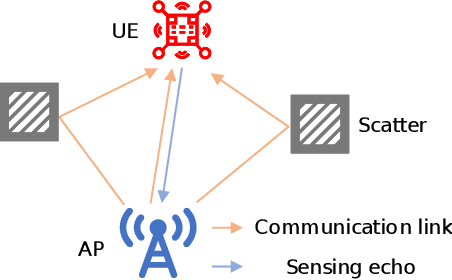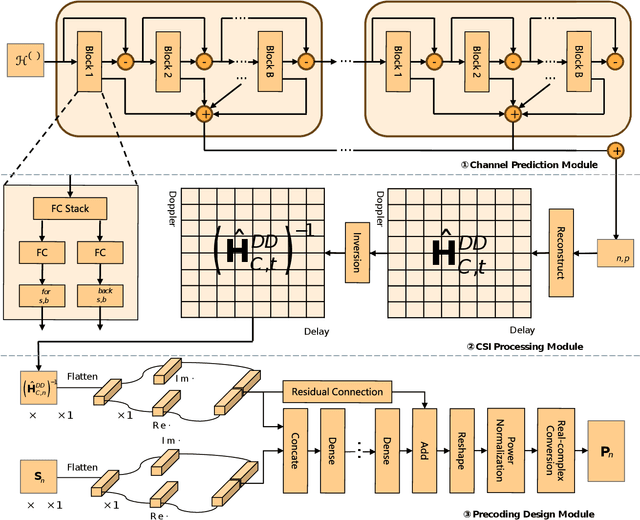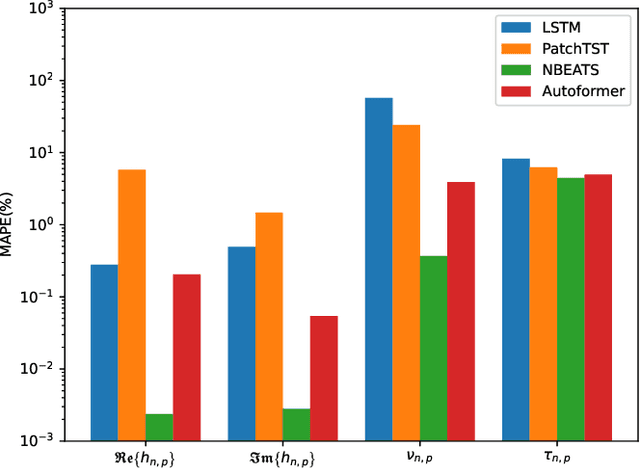Deep Learning-Enabled ISAC-OTFS Pre-equalization Design for Aerial-Terrestrial Networks
Paper and Code
Dec 06, 2024



Orthogonal time frequency space (OTFS) modulation has been viewed as a promising technique for integrated sensing and communication (ISAC) systems and aerial-terrestrial networks, due to its delay-Doppler domain transmission property and strong Doppler-resistance capability. However, it also suffers from high processing complexity at the receiver. In this work, we propose a novel pre-equalization based ISAC-OTFS transmission framework, where the terrestrial base station (BS) executes pre-equalization based on its estimated channel state information (CSI). In particular, the mean square error of OTFS symbol demodulation and Cramer-Rao lower bound of sensing parameter estimation are derived, and their weighted sum is utilized as the metric for optimizing the pre-equalization matrix. To address the formulated problem while taking the time-varying CSI into consideration, a deep learning enabled channel prediction-based pre-equalization framework is proposed, where a parameter-level channel prediction module is utilized to decouple OTFS channel parameters, and a low-dimensional prediction network is leveraged to correct outdated CSI. A CSI processing module is then used to initialize the input of the pre-equalization module. Finally, a residual-structured deep neural network is cascaded to execute pre-equalization. Simulation results show that under the proposed framework, the demodulation complexity at the receiver as well as the pilot overhead for channel estimation, are significantly reduced, while the symbol detection performance approaches those of conventional minimum mean square error equalization and perfect CSI.
 Add to Chrome
Add to Chrome Add to Firefox
Add to Firefox Add to Edge
Add to Edge